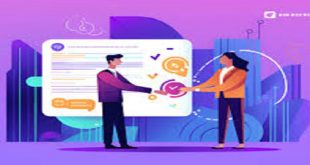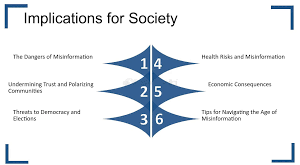The Internet: A transformative force in modern society
Genesis
The internet, often referred to as one of humanity’s greatest inventions, has drastically changed the way we communicate, work, and live. It is coming out from military and academic research in the late 20th century, which has evolved to become a global network that interconnects billions of users.
This report, therefore, covers the history of the internet, its influence on aspects of society, and some of the challenges and opportunities it presents in this cyber age.
The Origin of the net
The net traces its root back to the Sixties when the US department of protection funded studies to increase a community that would be capable of withstanding potential nuclear attacks. This work resulted in the development of ARPANET, a technology that enabled a few computers to communicate over one community.
All through the early Nineteen Seventies, development of your Transmission deal with Protocol and net Protocol standardized info communication throughout networks, which became the basis of today’s state-of-the-art world wide web.
During the early Nineties, the web began to change from a computer for scientists to a medium for public entertainment. Tim Berners-Lee’s world wide web in 1991 dramatically changed the way people accessed information, navigating by links between websites,
thereby ushering in an electronic revolution that would carry far-reaching implications to society.
Communication Revolution
Probably one of the most profound changes the internet brought about is in communication means. Mail and landline telephone as traditional means of communication were left far behind as email, instant messaging, and social media systems took over.
Virtual mediums have enabled instantaneous communication across the globe, transcending geographical limitations.
The social media gadget of fb, Twitter, and Instagram has transformed the nature of social interaction, by which clients can achieve their buddies and family members, percentage research findings, and even mobilize for social causes.
At the same time, these gadgets have created problems related to privateness, fake information, and the impact of virtual communications on intellectual fitness.
Economic Transformation
Internet now no longer speaks alone, but it has also transformed the way we do business. E-commerce became the leading force in the worldwide financial system with the emergence of companies such as Amazon and Alibaba that forged a new retail community.
Online purchases that have become so easy have simply changed buyer behavior, pushing the brick-and-mortar stores out of the scene and creating virtual platforms.
Also, in parallel, the gig economy has bloomed, assisted by applications such as Uber, Lyft, and Upwork. As a result, individuals can offer their services on a freelance basis by availing themselves through one of those applications, thereby giving rise to flexible work opportunities.
Point is this enabled quite many, but it also gave rise to questions of protection for processes, benefits, and workers’ rights in an increasingly dynamic work environment.
Education and Information Distribution
The internet has revolutionized education, making it so much easier to master more things than ever. With online courses, webinars, and even other academic resources available without hassle, people can acquire knowledge sitting in the comfort of their homes.
Systems like Coursera, Khan Academy, and edX have democratized education, allowing freshmen from all parts of the globe to have entry to top class content material.
but, this availability also emphasizes the digital divide—disparities in access to the internet between urban and rural areas, in addition to among various socioeconomic businesses. Efforts to bridge this hole are important to ensuring that everyone can take advantage of the richness of knowledge at their fingertips.
Social Movements and Activism
Social movements and activist efforts have indeed found the internet as an effective means of channeling changes. Grassroots movements can easily become massive in a short time by rallying people to action, for instance, on matters of weather exchange, racial equality, and human rights.
Examples are the Arab Spring, Black Lives remember, and the #MeToo movements, through which voices can be amplified and support developed for larger causes on social media.
But the same platforms that empower activism can just as easily be used to disseminate disinformation and crush opposition. The opportunity arises in understanding what is factual and what is constructed narrative, especially during a period when “fake news” can take many unexpected turns.
Challenges and Concerns
Despite its numerous advantages, the internet poses a major challenge. Cybersecurity threats have become rife, through data breaches, identity theft, and cyberbullying. The internet, in this regard, makes it risky for individuals and organizations to throw caution overboard and expose their virtual identities and confidential information in the public sphere.
In addition, the emergence of surveillance capitalism, whereby agencies amass and monetize personal information, is a moral concern about privateness. users frequently unknowingly sacrifice privateness to receive free services, making the relationship between privateness and comfort difficult to reconcile.
Every other relevant challenge is the effect of the web on intellectual well-being. Always being connected and exposed to the selected lives on social media can lead to feelings of inadequacy, tension, and desperation. Balance between online and offline interaction is essential to general well-being.
The future of the internet
Knowing beforehand of its search, the future of the net is promisingly uncertain. Technology such as artificial Genius (AI), virtual fact (VR), and the internet of factors (IoT) are about to bring similarly profound improvements into our lives.
AI can improve user reports by personalising information to be enhanced in a user-friendly model, as well as being able to make a better VR for training and leisure.
These trends notwithstanding, nevertheless, they augment ethical and social issues. With advanced AI research, harmful bias cannot be ignored in relation to dislodging jobs, nor can a monopoly on the jobs’ line be silenced.
Moreover, the trend making devices with IoT increasingly interconnected would make them efficient but at an increased susceptibility to cyber attacks.
End
The internet has indeed changed our world: it transformed our lifestyles and changed patterns of communication and business relations, our searching skills, and how we seek for change. As we traverse this virtual landscape, it is imperative to appreciate the possibilities and dangers it holds.
Producing online literacy, promoting responsible use of the internet, and framing a conversation regarding access and privacy are steps toward ensuring that the internet remains a force for good in society.
We will unleash new opportunities for innovation and connection inside the years yet to come through responsibly unlocking its full potential.


